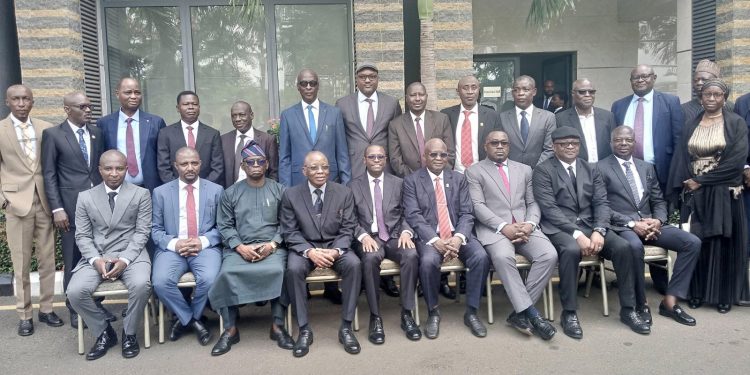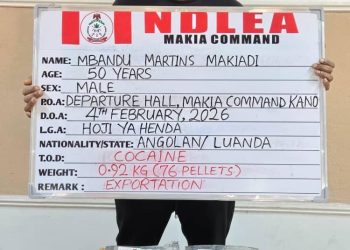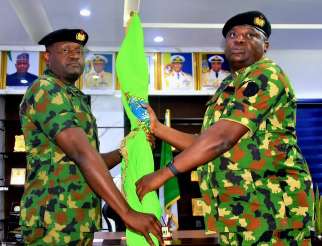By Nkechi Eze
In a decisive move to strengthen Nigeria’s anti-corruption architecture, the Independent Corrupt Practices and Other Related Offences Commission (ICPC) has convened a strategic roundtable engagement with State Attorneys-General from the North-Central geopolitical zone. The high-level forum, held in Ilorin, Kwara State, underscores the Commission’s renewed emphasis on building robust subnational alliances to advance the implementation of the National Anti-Corruption Strategy (NACS) and promote transparency and accountability across all levels of government.
According to a statement issued by the ICPC spokesperson, Demola Bakare, the event, which took place at Noktel Resort in Ilorin, brought together Attorneys-General from the six North-Central states Benue, Kogi, Kwara, Nasarawa, Niger, and Plateau as well as senior officials from the ICPC, representatives of the Kwara State Ministry of Justice, and other key stakeholders. The roundtable was held under the theme: “Strengthening Subnational Synergies for Corruption Prevention: Advancing the National Anti-Corruption Strategy in Nigeria’s North-Central Region.”
The roundtable, described by participants as timely and forward-looking, forms part of ICPC’s strategic engagements to institutionalize integrity, build state-level accountability systems, and align anti-corruption efforts across the federal and state levels. The Commission’s initiative is anchored on the belief that durable progress in the fight against corruption depends significantly on grassroots-level involvement and ownership of preventive frameworks.
The event was formally declared open by the Chairman of the Code of Conduct Bureau (CCB), Dr. Abdullahi Usman Bello, who commended ICPC for leading such an initiative and emphasized that corruption prevention must be addressed holistically, involving both federal institutions and subnational actors. He described the roundtable as “an essential platform for dialogue and collaboration that will help harmonize legal, institutional, and administrative efforts in addressing corruption.”
In separate goodwill messages, the Chairmen of the Senate and House of Representatives Committees on Anti-Corruption reaffirmed their legislative support for broad-based anti-corruption reforms. They expressed optimism that such engagements would significantly enhance the quality of governance and accountability at the state level. Similarly, the Honourable Chief Judge of Kwara State lent judicial weight to the initiative, urging the legal community and judicial institutions to intensify efforts at upholding the rule of law and ensuring timely adjudication of corruption-related cases.
In his welcome address, ICPC Chairman, Dr. Musa Adamu Aliyu, SAN, highlighted the strategic value of enhancing state-level cooperation in the implementation of anti-corruption policies. He stated that the Commission is scaling up efforts to strengthen its zonal and subnational structures to ensure that anti-corruption initiatives are context-specific and responsive to the realities of different regions.
“Our focus is shifting towards deepening state-level ownership of the National Anti-Corruption Strategy,” Dr. Aliyu said. “We believe that meaningful impact can only be achieved when preventive measures and enforcement efforts are localized, community-driven, and aligned with regional governance frameworks.”
He reiterated ICPC’s readiness to work closely with State Attorneys-General to identify vulnerabilities in state institutions, strengthen prosecutorial collaboration, and foster a culture of integrity within public service delivery.
A keynote address was delivered by Dr. Suleiman Usman, SAN, former Attorney-General of Sokoto State, who provided in-depth legal perspectives on intergovernmental collaboration, the challenges of prosecuting corruption-related offences at the state level, and the need for harmonized prosecutorial standards. He advocated for greater institutional independence for state Ministries of Justice and increased investments in legal infrastructure and professional training for state prosecutors.
Participants at the forum unanimously acknowledged the pivotal role that State Attorneys-General play in safeguarding public trust and ensuring legal compliance across ministries, departments, and agencies. They noted that, through their constitutional mandates, Attorneys-General are uniquely positioned to drive reforms in governance and partner with anti-corruption bodies to deliver transparent and accountable administration.
The roundtable concluded with a renewed commitment by all stakeholders to deepen cooperation, share intelligence, support legal reforms, and promote best practices that will improve investigations, strengthen prosecutions, and ultimately restore citizens’ confidence in public institutions.
















